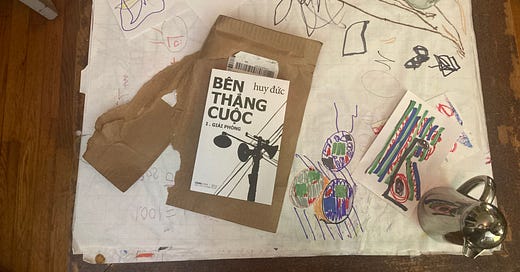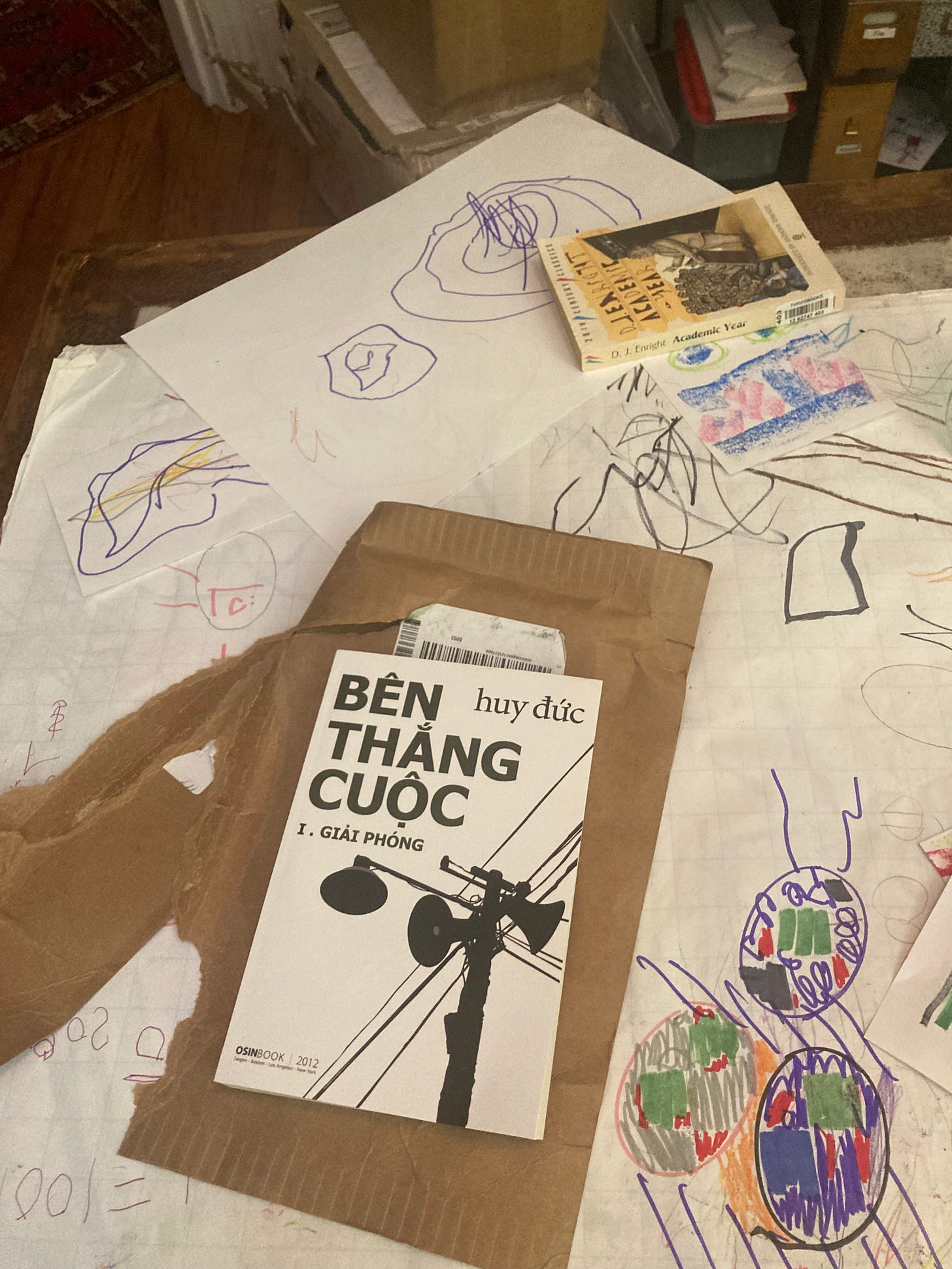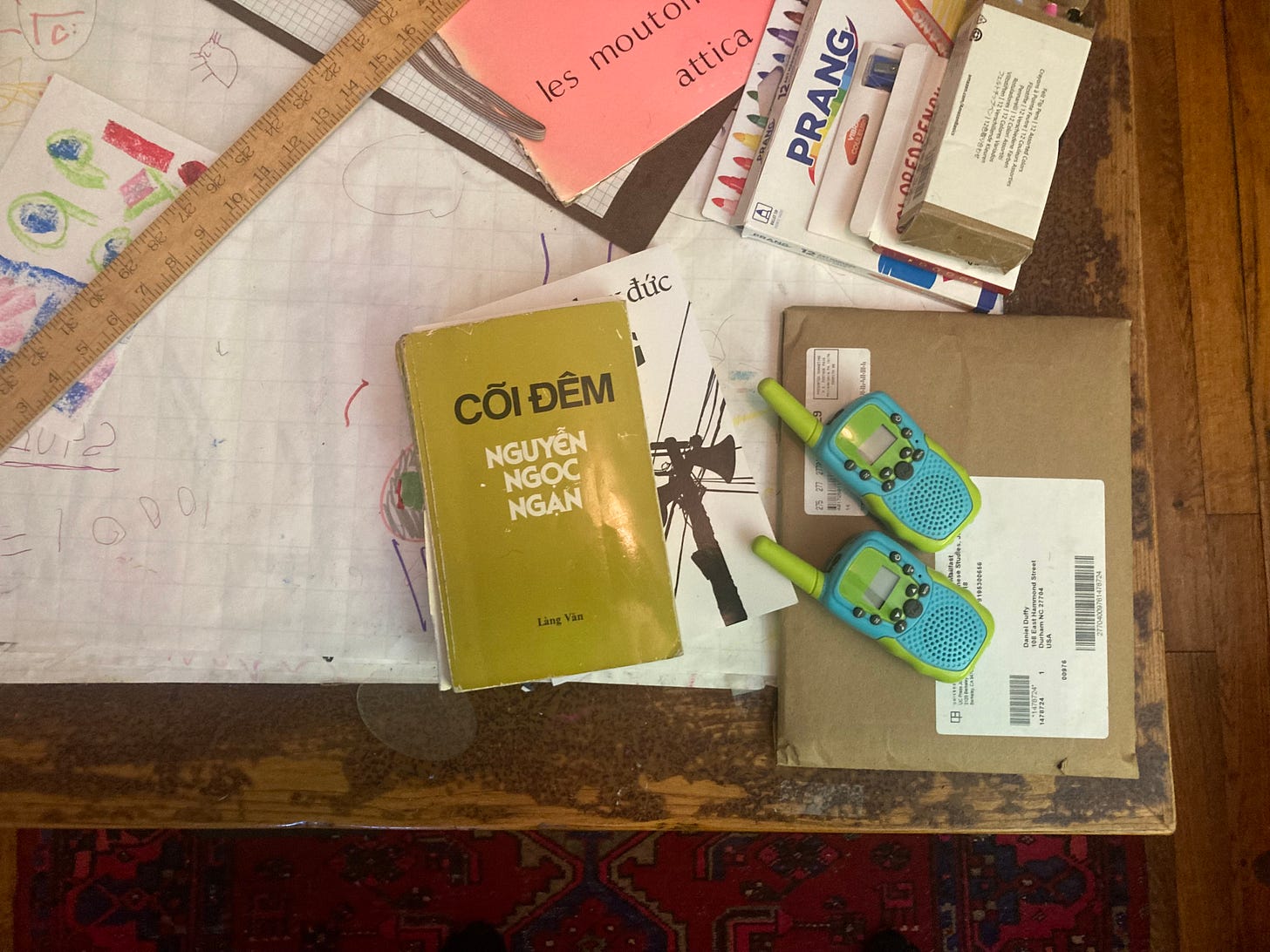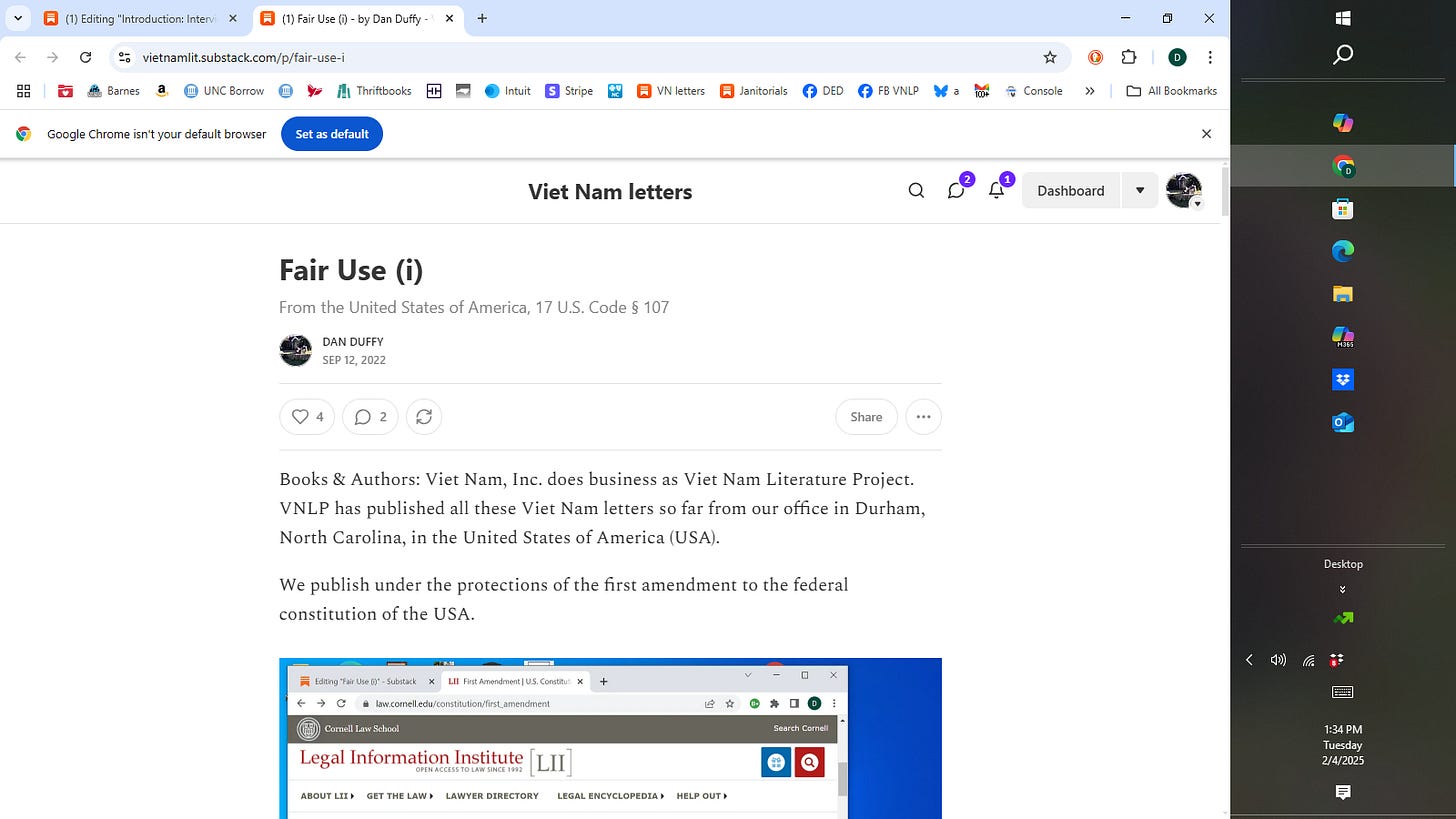My copy of the first volume of Huy Đức’s history of Viet Nam over our common lifetime has arrived. The title jumped up at me.
Bên thắng cuộc. That first word, Bên, also comes first in the first sentence of the first chapter of Cõi đêm, a novel by Nguyễn Ngọc Ngạn which I have read hard.
Bên ngoài, trời dã sáng lắm. Outside, it was bright already. Alternatively:
Over there, it was already morning. Bên means side, whether inside and outside, left and right, sides of a family or an ocean.
In the novel, a man returned from Canada with no morals is snoring in a Saigon hotel room. Remarkably, while his author has maintained for 50 years that no Vietnamese who has fled should return,
in his 1991 novel this stern anti-communist lampooned a selfish thoughtless refugee wreaking havoc among the decent hardworking people of the Socialist Republic of Viet Nam. The sun is high and the fool is out cold in bed.
Where? Bên thắng cuộc.
In Vietnamese we capitalize the first letter only of a book title, as we also do in French. In English: The Winning Side.
Where? Bên ngoài. Over there, Cõi đêm, the Country of Night.
The law of small numbers yielded my association from the title of Huy Đức’s history to the first word of Nguyễn Ngọc Ngạn’s novel. I know few Vietnamese words and have read few books in that language.
Has anyone made a more deliberate and informed association of the journalist and the novelist? I asked the search engine.
The critic Thiên Hoàng has broadcast separately on Huy Đức’s history and also on an article of the same title from Nguyễn Ngọc Ngạn, published in April, 2015.
Both Huy Đức’s history and Ngạn’s remarks have occasioned many podcasts. What audio and text commentaries have communicated to me is that both authors are social realists with a moral eye on the country since the fall of Saigon.
Beyond that, I am the only reader I am aware of who has associated the 2 men. Ngạn himself, writing 3 years after Huy Đức’s book appeared in print, does not mention it.
Go figure. The cover photo leaped to my eye as well.
In silhouette, the top half of a utility pole with comms wire, power cables, resistors, a street lamp, and 2 public address speakers. Looking from here you may see in silhouette 1 of our creosote-soaked wooden masts.
No. Over there they cast a utility pole in cement.
You may see them all over Viet Nam and around the world in the paintings of Bùi Xuân Phái. I take photographs around my Durham, North Carolina neighborhood of our hollow steel poles, in Phái’s manner: with few human figures in what is in life a densely populated area.
I looked at the cover of the first volume of Huy Đức’s book and I saw first my favorite Vietnamese author and the world’s favorite Vietnamese painter. Law of small numbers.
I also have an eye for emptiness and error, sin and sorrow. Oh hey.
Look: my copy of the Journal of Vietnamese Studies with Peter B. Zinoman’s Interview with Trương Huy San (Huy Đức) has arrived!
The previous Viet Nam letter, of January 4, 2025, was our first on historian Peter Zinoman’s introduction to the Journal of Vietnamese Studies’ publication this year of his interview in 2013 with journalist Huy Đức. Click on the image below for a direct link to that letter.
We have published 6 Viet Nam letters on the novel Cõi đêm by Nguyễn Ngọc Ngạn. Click on the image below to the first letter, which offers links to the next five.
Viet Nam letters respects the property of others under paragraph 107 of United States Code Title 17. If we asked for permission it wouldn’t be criticism. We explain our fair use at length in the letter of September 12, 2022.
The colophon of these Viet Nam letters, directly below, shows the janitor speaking with poet David A. Willson on a Veterans Day.










Good work, Dan.